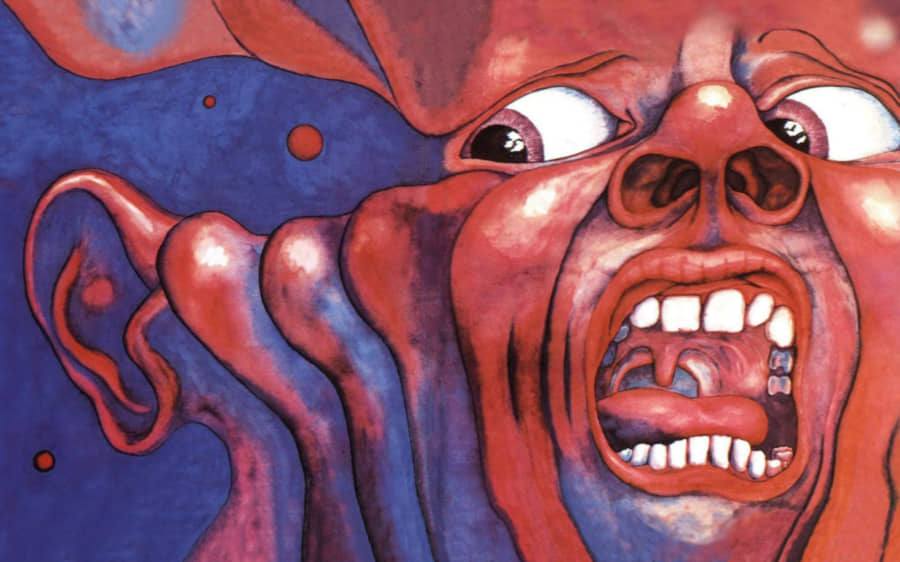As befits a genre that emphatically rejected the two or three-minute pop song, this article will be the longest in my series, and unashamedly so. Progressive Rock, a.k.a. Prog Rock, is a pleasure about which I feel remarkably little guilt, and is perhaps the most reflective of my socio-economic privilege. My offering takes the form of a couple of amuses-bouches, before presenting the reader with the core of my argument.
To qualify for a Fellowship of All Saints’ College, Oxford, it is necessary to perform with distinction in an unseen three-hour examination, equipped with a Parker 51 fountain pen and a wad of foolscap paper. Starched academic dress must be worn at all times.
The exam takes the form of a theme which is sprung on the unsuspecting candidate regardless of their background. The aim is to produce a script that shows evidence of powerful and original thinking on a subject of immense human interest.
Previous themes have been “Whither Anglicanism?” “The impact of Brexit on British sovereignty,” and “Sculpture and subalternity” (that’s when Prof. Bhabha set it). This year, Professor Mark Stocker, Robert Marley Chair in Reggae and Rastafarian Studies and Fellow of Tesco College, decided that his guilty pleasure of Progressive Rock would admirably fit the brief. The exam paper is below.
Candidates must choose THREE questions. Any duplication of material or argument will be severely penalised.
- “After 1980, Prog Rock was a dead duck” (M. Stocker). Discuss.
- Examine the impact of EITHER folk OR jazz OR blues on Progressive Rock.
- “Prog Rock knew what it was not. Yet it is far harder to say what it is” (M. Stocker). Discuss.
- Examine the role of virtuosity and technique in ONE Progressive Rock album.
- How “classical” was Progressive Rock?
- Examine the role and evolution of the Concept Album in Progressive Rock.
- With particular reference to the music of 10cc, examine the interrelationship if any between Progressive Rock, Progressive Pop and mainstream Pop.

Mrs. Broadbridge on Prog Rock:
“My Mark plays that kind of stuff on his sports car’s cassette player with all those speakers, very loudly. Probably needs to be loud, what with that horrid engine! If you ask me, it’s mostly pretentious twaddle. Those musicians claim they’re classically influenced. Well, I think classical music should be classical and if you must have it, rock should be rock. It’s neither fish nor fowl, though the way it goes on and on with those guitar bits is pretty foul to me! Every now and then though it can come up with a good melody. A song I like of this type is “Fanfare for the Common Man,” which they play on one of my all-time favourite programmes, the Horse of the Year show:
“But mostly it’s just meaningless noise. We don’t need no education? That’s bad English and shows that’s just what they do need!”

And now, reader, for something a little more serious and substantial.
As a Baudelairean flaneur and dabbler, I cannot be a profound guide, but I make up for it in feeling. As previously indicated, I very much identify with Prog’s high seriousness, aspirations even to braininess, and its early belief in taking the listener on a journey and making a better world. It’s part of the endearing mid-to-later 1960s optimism when liberalism did seem to be offering something hopeful, when there was greater income and wealth equality and access to free higher education: not ipso facto bad things, surely?
Conservatives as much as liberals bought into this ethos and this came over powerfully in researching my recent book, When Britain Went Decimal, but I digress. It was an 18th century philosophe who commented that after having seen a great and uplifting play, as they exit the theatre, “all men are friends.” This is surely the feeling engendered by the Moody Blues in their exquisite, melodic pioneering concept album, ‘Days of Future Passed’ (1967). When I first heard one of the tracks, “Voices in the Sky,” aged just 11, I felt a definite frisson: this is a special moment, a new moment, for popular music—can’t other people see it?
It’s a way forward: it offers hope. Talking of which, here is two exquisite minutes of the Mahavishnu Orchestra, with the electric John McLaughlin on his double-neck guitar, Prog at its most uber-cool!
I even defend the supposed sexism of saying “all men” above. For whatever reason, women constituted a tiny minority of Prog Rock fans and musicians alike—occasional progressively inclined artists like Kate Bush aside. Why this is so is a little puzzling, because Prog is nothing like as macho as heavy metal or blues, and is characterised by the considerable, civilised respect that its exponents often manifest towards each other in their constantly varying collaborations and permutations. However, I concede that ecstatically playing the air guitar in imitation of Chris Squire of Yes or the air keyboards of Keith Emerson is not something one would normally associate with the fair sex. Isn’t the loss theirs?

You need to do a little work to acquire a mature appreciation of Prog Rock. The great art historian Ernst Gombrich declared that we see what we know. Correspondingly, with Prog, we hear what we listen to. By contrast, rock and roll, mainstream pop and still more Prog’s arch enemy punk rock are the antithesis of intellectual and instead represent three minutes of dancing animality and instant, almost invariably shallow, gratification. Thus their followers—unless they saw the light—were often aghast at Prog’s aspirations, instantly dismissing it as pretentious and elitist. A text that particularly set their teeth on edge was the sleeve notes for Gentle Giant’s album Acquiring the Taste:
“It is our goal to expand the frontiers of contemporary popular music at the risk of being unpopular… From the outset we have abandoned all preconceived thoughts on blatant commercialism. Instead we hope to give you something far more substantial and fulfilling.”

So, you needed to acquire the taste. A noble aim, surely, but hoi polloi and still less forgivably leading rock critics such as Lester Bangs, eschewed and denounced Gentle Giant’s appeal. To put it coarsely, and they were coarse, they gagged. Yet there was surely an element of “épater les proles” in those sleeve notes and the problem was it worked all too well, and rebounded…
There is much in Prog that I identify personally with—it’s my roots, man. Its origins are emphatically English—and Home Counties, not Liverpudlian, thank you. Prog artists are Caucasian, though Prog Soul in the hands of 1970s Stevie Wonder and Marvin Gaye could be darn good. Progs are often solidly middle-class and privately educated: Genesis are mostly Old Boys of the very exclusive Charterhouse. Their values presuppose a certain degree of culture and refinement: a large proportion of Prog Rock artists were classically-trained, and had sung in church choirs, usually Anglican not Catholic. Some, like Keith Emerson, were surely moved by church organ music. They would have gone on to art school or academies of music. Those fine Prog pioneers the Zombies were grammar school boys from the cathedral city of St Albans, close to where I grew up:
What a spiffing mellotron!
I can easily envisage chatting affably to their breathily beautiful vocalist Colin Blunstone about the cathedral’s Romanesque tower and Decorated Gothic tracery in a way that I don’t think I could do to Beyonce or even Kylie Minogue, while any self-respecting punk would surely respond to my overtures with a vulgar oath.
Even in their names, Prog artists live up to these ideals: calling yourself the Van de Graaf Generator presupposes a knowledge of physics as well as orthography. The Generator’s lead vocalist, long since gone solo, is the remarkable Peter Hammill, a science graduate of Manchester University. Consider the subject matter of “The Play’s the Thing,” Hammill’s heartfelt tribute to the Bard, recorded in 1988:
Any Prog aficionado would instantly know that the genre was at its critical nadir at that time—and Hammill typically refused to concede one whit to this. With utterly perfect enunciation, he entreats us:
How could he know so much? How could he bear such knowledge? How could he dare to write it in the plays? What is it Shakespeare’d say If he came back today? Surely he'd recognise these mortal coils How do we carry on? No-one knows where they fit in No-one knows who they are or where they've been What does the writer mean? How do we play this scene? What didn't Shakespeare know that we do now?
Moving stuff—and I’m not the only one who’s moved. There’s a lovely story of a dance at an upper-class girls’ school perhaps 40 years ago. A parent, one hopes with a wicked sense of humour and certainly with the right connections, engaged Hammill to play there live. The girls stood in a circle around him and his piano in their dresses, any pimply boys forsaken, while they wept at his mournfully beautiful dirges. So, Prog can appeal to the feminine!
Sometimes the name of a Prog act can be even more abstruse and esoteric than the Van de Graaff generator. I well remember Robert John Godfrey, Royal Academy of Music graduate, being interviewed about the etymology of his band, the critically underrated Enid. Godfrey is notoriously curmudgeonly and he didn’t disappoint this time, telling the interviewer: ‘I have no wish to tell you the origins of our name. It is essentially private. Next question?’ “Okay, Mr Godfrey, your track ‘The Loved Ones’ is surely a tender and knowing tribute to Rachmaninov?” “That’s more like it, my man!”
Training, technique and virtuosity are all prized Prog Rock qualities. To purists, Yes’s “Going for the one” is worryingly less sophisticated than some of their earlier recordings, treading dangerously nearer heavy rock than Prog. Maybe, and I’m the first to concede that its lyrics amount to very little, never a Yes strength:
Yet consider the following: Jon Andersen’s passionate high tenor, mimicked in the back beats of Alan White’s drums; Rick Wakeman’s piano, sometimes boogie and honkey-tonk, complemented by his state-of-the-art late 70s synthesiser. An intrepid counter-melody comes from Chris Squire’s slide guitar (and he went to the same high school as me, Squire!) Not least, there is Steve Howe’s steel guitar. The synthesis, without proper discipline, would be disastrous, but the outcome here is triumphant: “Going for the one” indeed had me shouting, entirely appositely, “Yes!” The reverse, I regret to say, applies to their later, post-Prog “Owner of a lonely heart,” whose brazen commercialism makes this devout follower yell, “No!” and perhaps, echoing the famous critic of Dylan gone electric, “Judas!”

(A prog rock album sleeve much admired by Dr. Stocker. And the music is not to be despised, either).
Nobody would call the barbed-wire voice of Roger Chapman, of Family fame, classically trained or even refined. And yet it’s a central component of that band’s appeal. Folk and—relatively unusually—blues ingredients go into their musicianship, yet their place in Prog’s B-list is secure. It is Chapman’s sheer imperfection that helps make his slow ballad, “My friend the sun” so affecting. Perhaps there’s a bit of the Cézanne in Chapman. The Frenchman was a technically poor painter who flunked art at the academy, but when viewed through a modernist lens, he is one of the very greatest; likewise “Chappo” (as he is affectionately called) through a Prog lens. The signature song of Family is “The Weaver’s Answer”:
It is about an elderly man asking for the “weaver of life” to unfold the events of his lived experience. As the song gets underway, the old man recounts his childhood, his first love, and the day he took a wife; he wonders aloud how it looks on the fabric from the weaver’s loom. It begins thus:
Weaver of life, let me look and see The pattern of my life gone by Shown on your tapestry… [orchestral dissonance] Just for one second, one glance upon your loom The flower of my childhood could appear within this room Does it of my youth show tears of yesterday Broken hearts within a heart as love first came my way? Did the lifeline patterns change as I became a man An added aura untold blends as I asked for her hand Did your golden needle sow its thread virginal white As lovers we embraced as one upon our wedding night?
What is the weaver’s answer? I won’t spoil it, but I entreat you to listen and challenge you to remain unmoved. Prog Rock repeatedly touches these nerves. It is infinitely superior to the mediocrities (punk or otherwise), committed to de-skilling music, that savaged and trashed it – some claim irreparably – in the later 1970s. And it isn’t all humourless, contrary to what Hammill and Chapman may lead you to believe. I shall close with two delightful, if relatively minor, Prog offerings to rest my case. Firstly, Jethro Tull (I love the conceit of naming one’s band after an early 18th century agricultural improver), ‘Too old to rock and roll/ Too young to die’ (itself something of an existential paradox):
This is followed by the creativity and wit of 10cc “Art for art’s sake (money for God’s sake),” evidently a favourite saying of Jewish Mancunian front man Graham Gouldman’s impecunious playwright father, Hymie:
Rock on, Prog!
Mark Stocker is an art historian whose recent book is When Britain Went Decimal: The Coinage of 1971.
